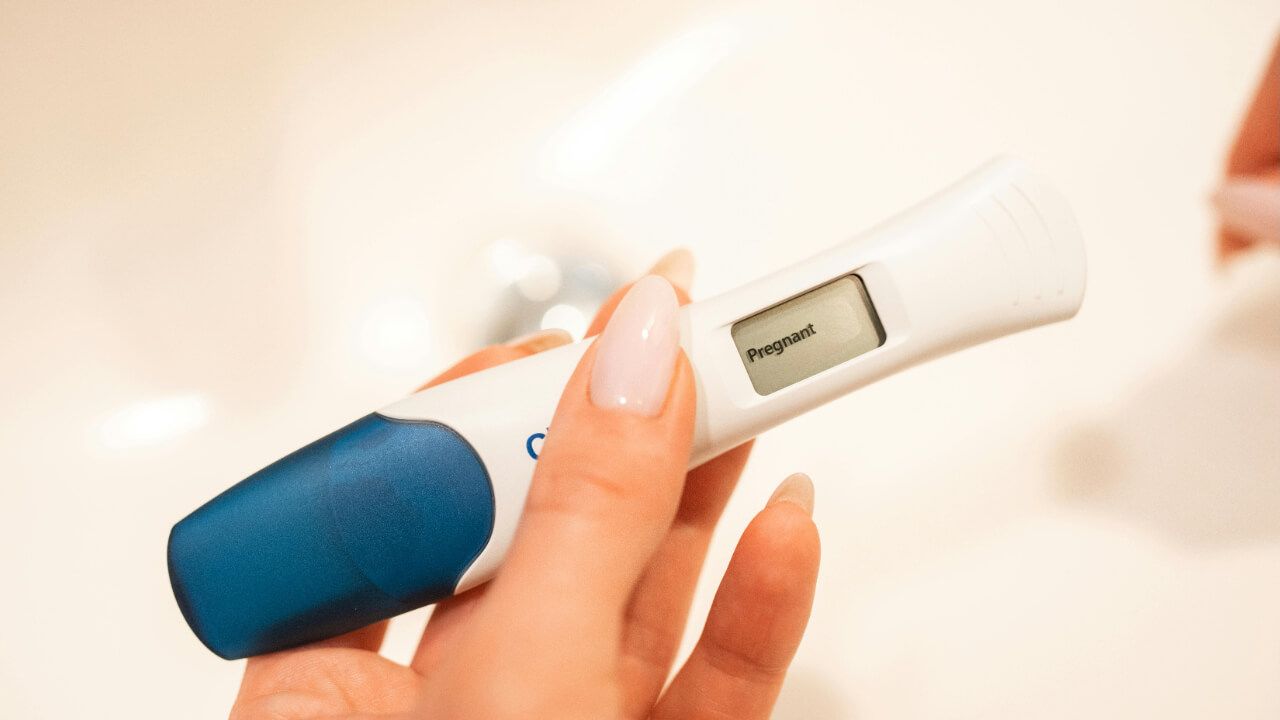
Chemical Pregnancy- what is the deal?
Ok, so you are tracking your cycle, and it’t is close to when you should get your period. Or, you are (not so patiently*) awaiting to take a pregnancy test after an embryo transfer or IUI. You know that you can test a little early before your missed period. You take a test, it is positive! Depending on where you are in your fertility journey, this positive pregnancy test may lead to excitement. Fear. Anxiety. Or quite possibly somewhere in between fluctuating between many emotions.
It worked!
Will it stick?
Should I get excited, or protect my heart and head and wait a little while to be excited?
Do I tell others, or need to call my OB?
It’s positive!!
As soon as you let yourself feel a little bit of excitement, you start bleeding and it seems like you have a period despite just having a positive pregnancy test only days or a week before. This can be a sign of a chemical pregnancy. While these happen frequently, those struggling with infertility may catch it with a positive pregnancy test. Those who are not trying to conceive would likely think that their period just came a few days late. Chemical pregnancies, though relatively common, often go unnoticed and unacknowledged. In this blog post, we'll chat about the causes and biology of chemical pregnancies.
What is a Chemical Pregnancy?
A chemical pregnancy refers to an early miscarriage that occurs shortly after implantation. Unlike traditional miscarriages that are often recognized later in the first trimester, chemical pregnancies are detected through a positive pregnancy test followed by a subsequent negative test. This early loss can be emotionally challenging for couples who are eagerly anticipating having a sweet healthy baby soon.
Causes of Chemical Pregnancies:
- Chromosomal Abnormalities:
- The most common cause of chemical pregnancies is chromosomal abnormalities in the developing embryo. These genetic irregularities can prevent the embryo from progressing beyond the early stages of pregnancy.
- Hormonal Imbalances:
- Fluctuations in hormone levels, particularly progesterone, can impact the stability of the uterine lining and affect the embryo's ability to implant successfully.
- Uterine Abnormalities:
- Structural issues within the uterus, such as fibroids or polyps, may interfere with the embryo's implantation or disrupt the early stages of pregnancy.
The Biology of Chemical Pregnancies:
- Implantation and Early Development:
- After fertilization, the embryo undergoes a journey to reach the uterus for implantation. Any disruptions during this process can lead to a chemical pregnancy.
- Hormonal Signals:
- Hormones play a crucial role in maintaining a pregnancy. In chemical pregnancies, hormonal signals may not be sufficient to sustain the early stages of development.
- Natural Selection:
- From a biological perspective, chemical pregnancies can be seen as a form of natural selection. The body recognizes abnormalities early on and prevents the progression of pregnancies that may not result in a healthy baby.
The Normalcy and Emotional Toll:
- Common Occurrence:
- Chemical pregnancies are more common than people realize, often occurring before a woman even realizes she is pregnant. Acknowledging their frequency helps in understanding that this is a part of the reproductive process.
- Emotional Impact:
- Despite the early stage of pregnancy, the emotional impact of a chemical pregnancy can be significant. Couples may feel a sense of loss and grief, mourning the potential life they were envisioning.
- It can feel like a defeat, especially after an IUI or IVF embryo transfer
- It is nomal to be sad, angry, frustrated and worried
- It can be helpful to talk to your partner, friends, family, or a counselor about this
- Breaking the Silence:
- Societal expectations around announcing pregnancies contribute to the emotional toll of chemical pregnancies. Breaking the silence and fostering open conversations can provide much-needed support to those experiencing this type of loss.
Common Questions:
Can I Get Pregnant After a Chemical Pregnancy?
A chemical pregnancy does not typically indicate a long-term impact on fertility. In most cases, women can conceive again after experiencing a chemical pregnancy. It's essential to allow your body time to recover emotionally and physically before attempting to conceive again. Your body will be able to get pregnant again when it is ready, similar to after a miscarriage.
Will I Have Difficulty Getting Pregnant in the Future?
While a single chemical pregnancy is generally not a cause for long-term fertility issues, recurrent miscarriages may warrant further investigation. If you experience multiple pregnancy losses, it's advisable to consult with a fertility specialist or your obstetrician to explore potential underlying causes. I can also help you advocate for yourself and guide a workup if you feel like your OB/GYN did no assess to to your preference. Sometimes a closer look is warranted which is where having a fertility consultant with an extensive medical background and personal infertility experience can really help guide you.
When Should I Talk to My OBGYN?
If you've had a chemical pregnancy and have concerns about your fertility, I recommended to schedule a follow-up appointment with your OB/GYN. Your healthcare provider can offer guidance based on your individual health history and circumstances. They may conduct tests or assessments to identify any potential factors affecting your fertility.
It's NEVER your Fault:
- Self-Blame:
- We as women often find themselves grappling with self-blame after a chemical pregnancy. It's crucial to emphasize that these losses are not the result of any actions or decisions made by you. The good takeaway here is that your body can get pregnant- i.e. the sperm got to the egg. Some may find comfort in knowing that part has worked.
- Medical Perspective:
- Healthcare professionals consistently highlight that the majority of chemical pregnancies are due to factors beyond a woman's control. Understanding this from a medical perspective can alleviate unnecessary guilt.
- Support and Compassion:
- Offering and seeking support during and after a chemical pregnancy is vital. Creating a compassionate environment helps individuals navigate emotional challenges without shouldering unnecessary blame.
Understanding chemical pregnancies involves acknowledging both the biological aspects and the emotional toll they can take. While it is normal for such pregnancies to occur, the emotional impact should not be taken lightly. It is crucial to tap into a supportive environment that dismantles the stigma associated with early pregnancy losses and ensures that individuals experiencing chemical pregnancies receive the compassion and understanding they deserve. It can be easy to spiral after a chemical pregnancy. Letting your mind wander can bring up some dark thoughts. Look for ways to manage stress and anxiety with artwork, exercise, self-care, long chats with friends, or seeing a counselor. Remember, it is never your fault, and support from loved ones and healthcare professionals can make a significant difference in the healing process.



